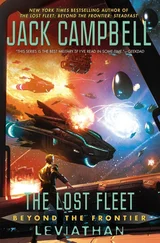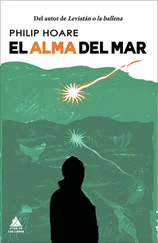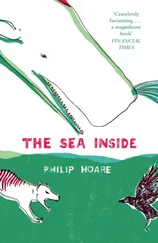What did whales really look like? Ishmael acknowledges that there are good reasons for such glaring errors. These animals were seen in their entirety only when beached, he notes, and ‘the living Leviathan has never yet fairly floated himself for his portrait…So there is no earthly way of finding out precisely what the whale really looks like.’ The remarkable thing about his statements–which are never less than remarkable–is that they still hold true. Cetaceans remain unfathomable. The whale would stay ‘unpainted to the last’,
And the only mode in which you can derive even a tolerable idea of his living contour, is by going a whaling yourself; but by doing so, you run no small risk of being eternally stove and sunk by him. Wherefore, it seems to me you had best not be too fastidious in your curiosity touching this Leviathan.
Similarly, turning the pages of old books, whaling prints resemble Renaissance masters, only with something fatally wrong: not angels announcing virgin births, or merchants’ wives sitting calmly in tiled parlours, but the frenzied struggle of a gigantic animal in its death throes. The stillness of such images seems to accentuate their strangeness, to widen the gap between what they are, and what they seek to portray. In all these pictures of whales–in paint, in teeth, in wood, in sheet-iron, in stone, in mountains, in stars–never was the distance between description and actuality so great. Never have words and pictures failed us so comprehensively.
There is something about the sperm whale that leads me on, something that, even now, I find it hard to describe. No matter how many pictures I might see, I cannot quite comprehend it. No matter how many times I might try to sketch it, its shape seems to elude me. None the less, my curiosity remains, for all Ishmael’s caution. And as he lingers in New Bedford’s cobbled streets, calling into Carter’s for some last-minute apparel before his long journey ahead–even as he readies himself for his own close encounter–my fitful and increasingly dubious guide seems to challenge me to discover why ‘above all other hunted whales, his is an unwritten life’.
I know him not, and never will.
The Tail, Moby-Dick
In some medieval past, someone pierced the head of the whale, releasing the waxy oil that filled it. As it hit the cool northern air, this hot, precious liquid became cloudy, looking for all the world like semen. Thus men came to believe that the leviathan carried its seed in its head. It may be saddled with an inelegant, even improper name, but it is also an entirely apt title, for the sperm whale is the seminal whale: the whale before all others, the emperor of whales, his imperial cetacean majesty, a whale of inherent, regal power. It fulfils our every expectation of the whale. Think of a whale, and a sperm whale swims into your head. Ask a child to draw a whale, and he will trace out a sperm whale, riding high on the sea.
But the sperm whale also bears the legacy of our sins; an animal whose life came to be written only because it was taken; a whale so wreathed in superlatives and impossibilities that if no one had ever seen it, we would hardly believe that it existed–and even then, we might not be too sure. Only such a creature could lend Melville’s book its power: after all, Moby-Dick could hardly have been written about a butterfly.
Scientifically, it is in a family of its own. Sperm whales–classified Physeter macrocephalus or ‘big-headed blower’ by Linnæus, the father of taxonomy, in 1758, but commonly called cachalots–are the most ancient whales, the only remaining members of the Physeteridæ which evolved twenty-three million years ago and numbered twenty genera in the Pliocene and Miocene. (In fact, Linnæus at first identified four species: Physeter macrocephalus, P. catodon, P. microps and P. tursio , but all are now known as one, with the pygmy and dwarf sperms– Kogia breviceps and K. sima –recognized as a separate family, Kogiidæ.) Relics of prehistory, they are, in one scientist’s words, ‘victims of geologic time…held in the rubbery bindings of [their] own gigantic skin’. Their nearest relation on land is the hippopotamus, although with their grey wrinkledness, small eyes and ivory teeth, they remind me more of elephants.
The sperm whale remains a class apart. Its shape itself seems somehow unformed, inchoate, as though something were missing–a pair of flippers or a fin. It is an unlikely outline for any animal, still less for the world’s largest predator. To Ishmael, the whale was the ominous embodiment of ‘half-formed fœtal suggestions of supernatural agencies’. Now it is seen as a ‘generally benign and vulnerable creature’; from a fearful foe it has become a placid, gentle giant of the seas. The distance between these two notions is the distance between myth and reality, between legend and science, between human history and natural history. It is a mark of its magical nature–and a symbol of the fate of all cetaceans–that the sperm whale has achieved such a transformation, from wilful dæmon to fragile survivor.
Physeter macrocephalus may have been around for millennia, but we have really only known it for two hundred years; only with the advent of modern whaling, at the beginning of the eighteenth century, did man come to comprehend even an inkling of the animal. It continues to confound us. The sperm whale is a greater carnivore than any dinosaur–a fact that threatens to turn its fearsome jaws into those of an aquatic tyrannosaur–although its body is ninety-seven per cent water, just as humans are mostly made of the same liquid; we all contain oceans within us. Like other whales, the sperm whale never drinks. It has been described as a desert animal; like a camel living off its hump, its thick layer of blubber allows the whale to weather the vicissitudes of the ocean, from feast to famine. In an environment in which food stocks alter drastically, there is an advantage in being able to live for three months without having to eat, and to be able to range over huge distances in temperatures ranging from tropical to Arctic.
Truly, these are global animals. Sperm whales live in every latitude and every ocean, from the North Atlantic to the South Pacific, even in the Mediterranean. Visual surveys from planes and ships have calculated that 360,000 of them still swim the world’s seas, although that is barely a quarter of the population that flourished before the age of the iron harpoon. Their love of deep water, foraging off steep continental shelves, meant that until recently only whalers–who described their quarry as travelling in veins , as if guided ‘by some infallible instinct’ (‘say, rather, secret intelligence from the Deity’, adds Ishmael)–saw sperm whales alive. As a result their study is still in embryo. It is as though we have hardly advanced since nineteenth-century illustrators depicted overweight whales lying on palm-fringed tropical beaches.
What facts we do know cluster together like the whales themselves, defying interpretation. What colour are they? Underwater, they appear ghostly grey filtered through the ocean’s blue, but in sunlight they appear brown or even sleekly black, depending on their age and sex. They may even verge on a dandified purple or lavender, with pale freckles scattered on their underbellies, leading to the pearly whiteness of the ‘beautiful and chaste looking mouth! from floor to ceiling lined, or rather papered with a glistening white membrane, glossy as bridal satins’. From the side and below, this whiteness glows like a half-open fridge; an invitation, and a warning. The huge head is patchy and mottled where the tissue-thin skin is constantly peeling like old paint; it is relatively smooth, but behind, the rest of the body is furrowed and creased like a prune. This mutability gives the animal a metamorphic dimension.
Читать дальше












